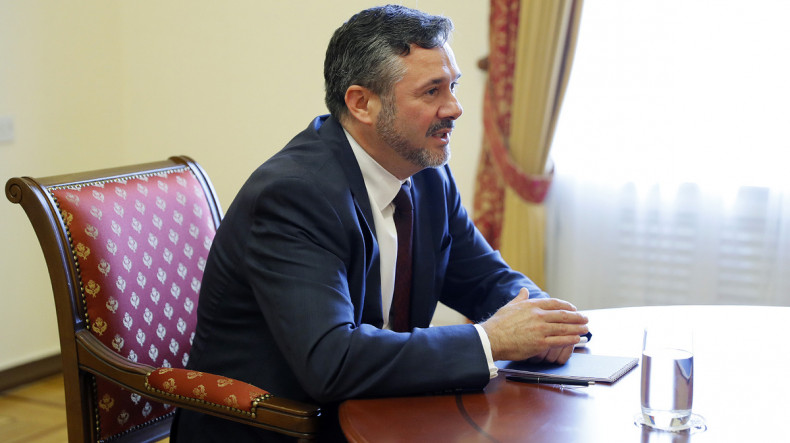
Envoy: Lithuania shared its experience with Yerevan and Baku for unlocking communications
In the context of opening communications, Lithuania has repeatedly shared its experience within the Kaliningrad transit scheme which it has with Russia, with both Yerevan and Baku, Lithuanian Ambassador to Armenia Andrius Pulokas said in an interview with Armenpress, noting that Lithuania and Armenia are geographically similar.
Making a comparison between the potential opening of communications between Armenia and Azerbaijan and the existing experience of Lithuania with the Russian Federation in the same context, the ambassador specifically noted:
"The Kaliningrad region of the Russian Federation, akin to Azerbaijan's Nakhchivan region, is an exclave where communication with the main territory of the country is vital. Lithuania's accession to the EU also played a decisive role in this regard. The EU, Lithuania, and Russia agreed on the so-called Kaliningrad transit scheme, and even amidst the Russian war in Ukraine, residents of mainland Russia and the Kaliningrad region continue to transit through the territory of Lithuania," the diplomat said, underscoring the role of the European Union in the agreement reached with Russia.
Pulokas emphasized that in the utilization of this communication, the parties managed to agree on two main important components: full control by Lithuania within its territory and maximum comfort for travelers during transit, without unnecessary obstacles.
"I believe that certain aspects of this simplified transit model could be beneficial in regulating the movement of people in Armenia. This is the European experience and model of success," the ambassador elaborated, highlighting that Lithuania has frequently shared its experience with both Yerevan and Baku.
Touching upon the issue of Azerbaijan's persistent demand from Armenia to provide a "corridor" to establish a land connection with Nakhichevan, while simultaneously threatening to obtain it through the use of force against Armenia, the ambassador noted: "Regarding the rhetoric, we understand its importance and prefer the term 'transit' to the term 'corridor.' After all, we live in the 21st century," he emphasized.
Newsfeed
Videos






























